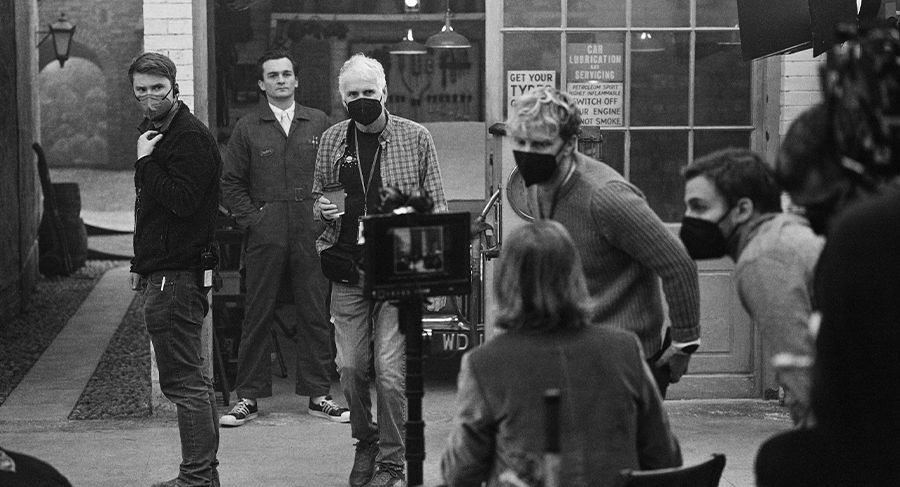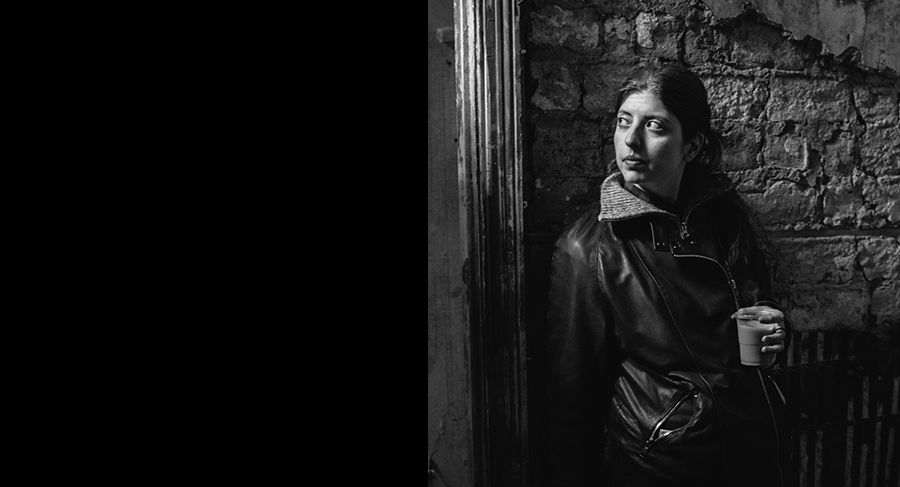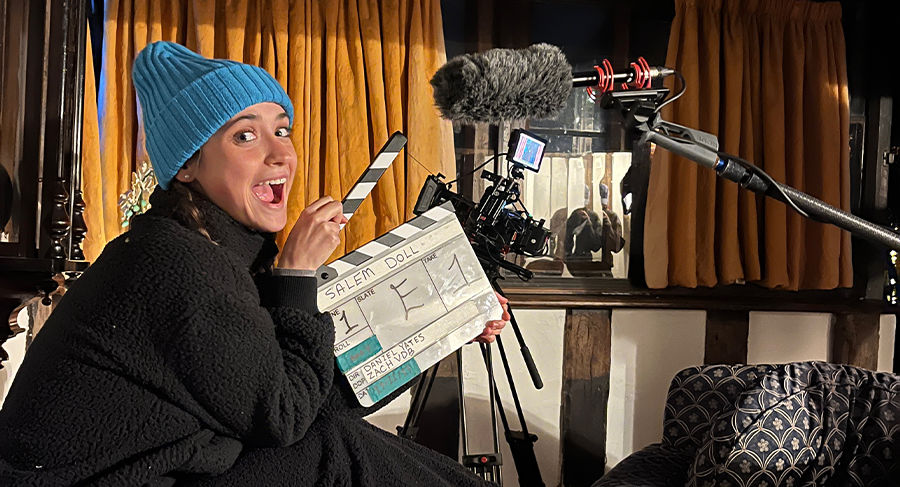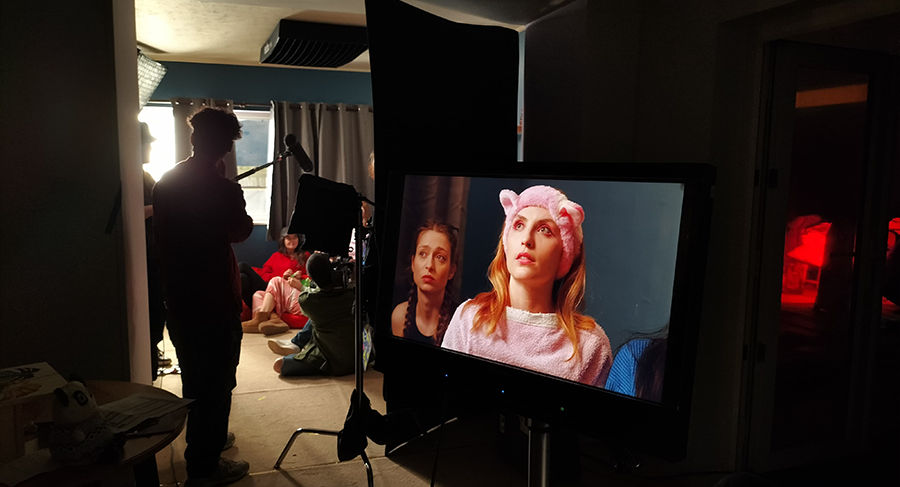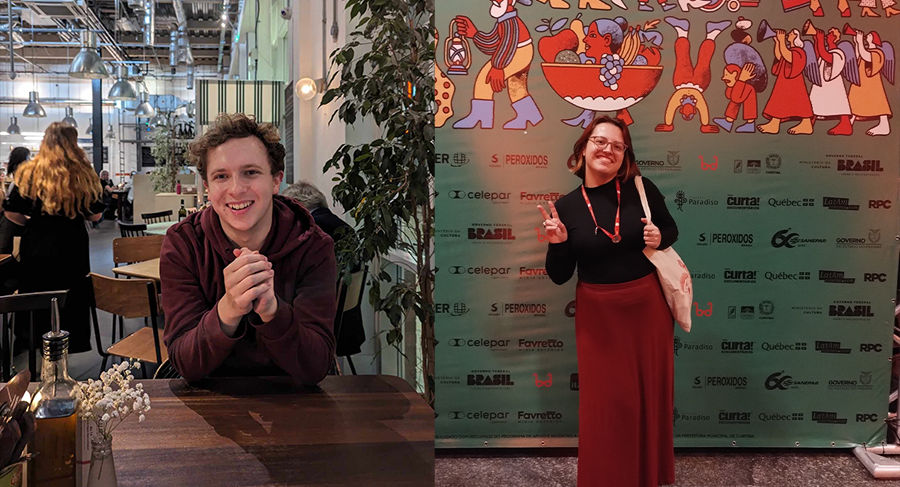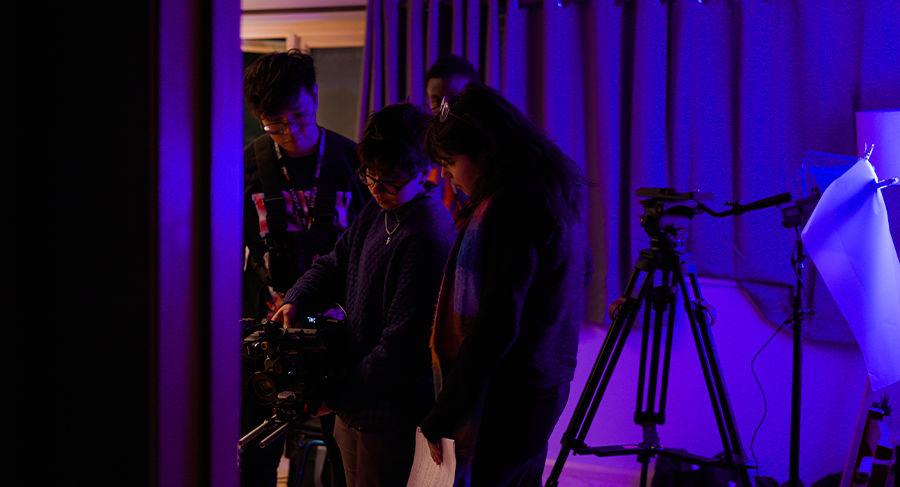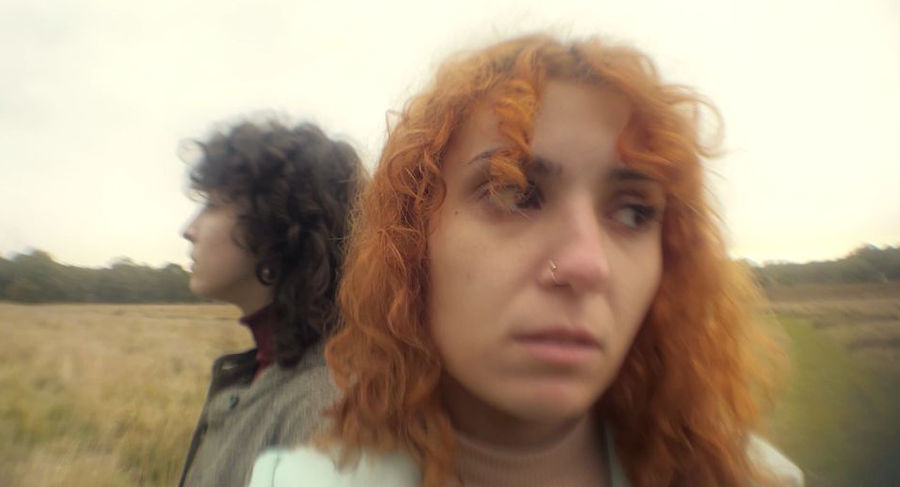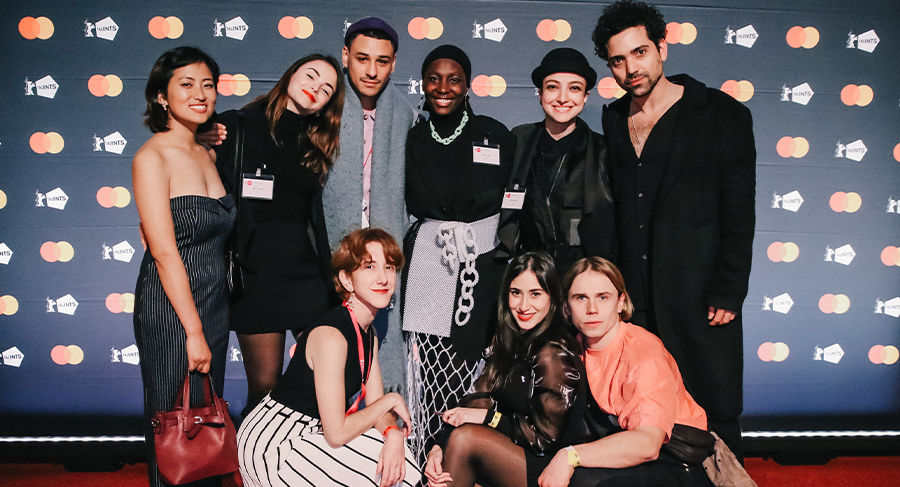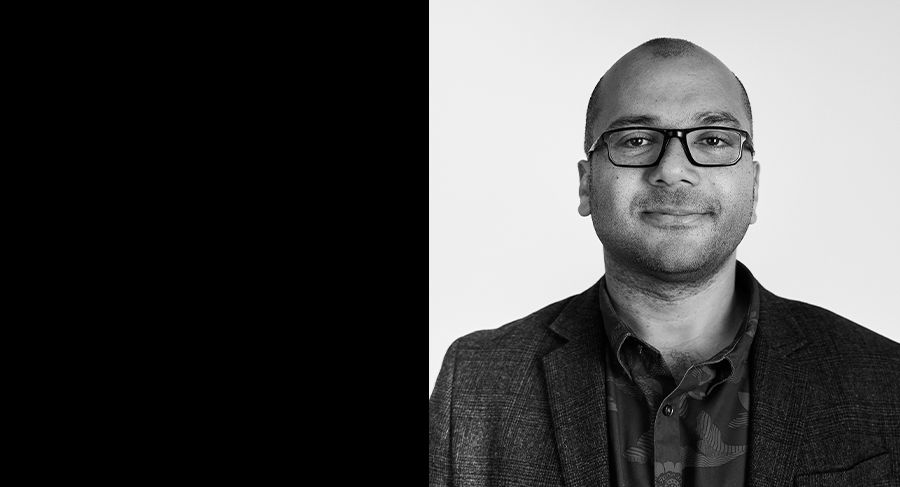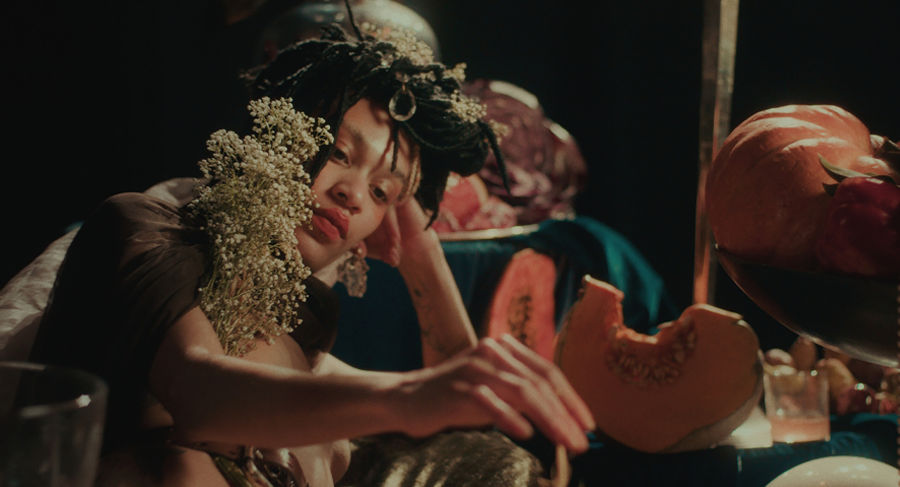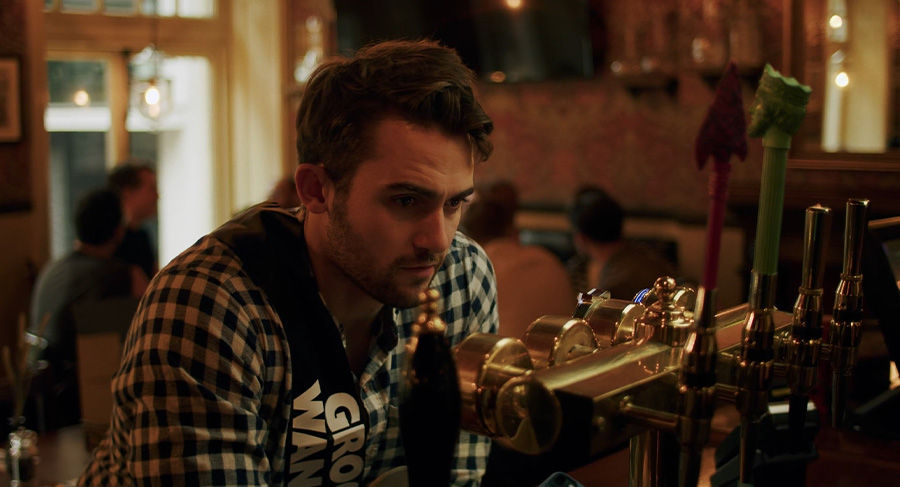KISERU: An Award-Winning Proof of Concept
By Elise Czyzowska
10 April 2024
‘We follow a synthetic being on a quest to understand the meaning of life’, began Berlin Graduate Igor Neljak, the Director, Co-Writer, Producer, and Editor of Kiseru.
‘As it embarks on a journey, it encounters a mysterious figure who challenges its perception of existence, and together, they represent the polarities of our time, across all dimensions.’
Created as a proof of concept for a feature version, Kiseru was the Final Project from Igor Neljak (MA Directing) and Co-Writer Hannah Pearson (MA Screenwriting). To date, it has collected sixteen wins across the festival circuit, including Best Creative Idea at the Robinson Film Awards.
In today’s blog, we delved into the wide world of Kiseru, chatting with Igor Neljak and Hannah Pearson…
Igor Neljak (MA Directing)
Firstly, can you share a little about where the idea for Kiseru began?
And how does the film represent your creative vision as a Director?
Within the framework of contemporary science fiction, I aimed to create a film where the narrative structure mirrors the complexities of its theme. I explored the symbolism of numbers in Japanese culture, with an emphasis on the number three.
This number, renowned for its oddity and symmetry, holds a sacred place – in Japanese culture, it symbolises creation, and embodies mind, body, and spirit. Incorporating this, I utilised the number three in various aspects of the narrative and editing structure.
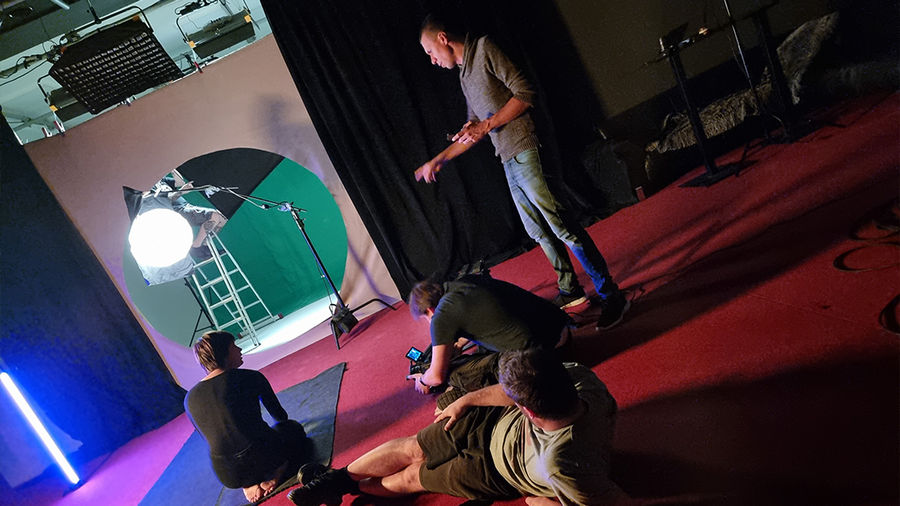
In what ways did the number three emerge through the editing process?
For me, editing begins immediately after the script is completed – long before the principal photography or post production. Once the idea is fully fleshed out, I like to take long walks, listen to music, and start ‘editing’.
I typically consider things like the number of shots, duration, rhythm… and I use this ‘mental edit’ to create a storyboard, contributing also to the economics of the production, since it also saves time on the final edit!
For Kiseru, I structured the editing around three questions, three stories, and three flashbacks. These flashbacks are interwoven in such a way that each one ebbs back and forth, starting with one and ending in three, gradually revealing more and more…
And finally, creating Kiseru as a proof of concept, what are you most excite to expand on in the feature?
Hannah is currently developing the treatment for the feature, and we’ll undoubtedly delve deeper into the themes of life and death. I’m also eager to further explore the tea ceremony scene.
We have some really exciting ideas that we can’t wait to share with an audience in the near future!
Watch the trailer for Kiseru…
Hannah Pearson (MA Screenwriting)
As a writer, one of your specialties is high-concept execution, and Kiseru definitely fits that bill! How did this project align with your voice as a screenwriter?
My BA Degree was in History & Religious Studies – partly because I hated maths, and partly because I thought I’d go on to study law. Of course, I changed my mind about that, and instead went all in on my writing aspirations. But I never considered the degree a waste.
Kiseru has a futuristic, high-concept world (which I loved crafting), but the themes are ancient – so I pulled a lot from my time studying Eastern religions.
Working on the script was really a reminder that there are so many pieces of my identity that find their way into my writing.
How do you approach engaging an audience with such ‘big’ themes to cover?
Igor and I agreed to keep the AI’s questions to just three, because the topics easily beg for more and more questions to be asked – it can very quickly avalanche.
It’s a short film, so we agreed to keep it short. You get three questions… what are you going to ask?
Hannah Pearson was the Creative Director of our collaboration with the European Film Awards. Go BTS of this project here!
From Kiseru with Igor, to working with your writing partner, Susannah Powers Stengel, what do you enjoy the most about co-writing?
I love the moments were one person comes up with a raw idea, and you just toss it back and forth until it naturally moulds into something polished.
Writing with others has only made me better at my craft. Frankly, I don’t trust writers or directors who never work with other writers!
How do you think your time at MetFilm School Berlin has made you a stronger screenwriter?
MetFilm School really facilitates opportunities to collaborate. Nothing I did last year was solely on my own. These different experiences changed me from seeing myself as ‘just’ a screenwriter, to now seeing myself as a filmmaker.
That’s what happens when you work together – you actually make things.
And finally, after a trip around the world, you’re now based in Berlin. What was it about the city that inspired you to stay?
Berlin gives me a sense of balance that no other city has done. I find the luxuries of the city to be the abundant green spaces, the reliable transportation, the social infrastructure, and the (relatively) cheap cost of living.
All of that provides the freedom of time, and more than anything, that’s what allows me to be creative.
- Igor Neljak studied MA Directing, and Hannah Pearson studied MA Screenwriting, both at MetFilm School Berlin. These degrees are also available in London and Leeds.
- Explore our full range of MA Degree at our upcoming Postgraduate Virtual Open Event, happening Wednesday 8 May, 6pm BST.


